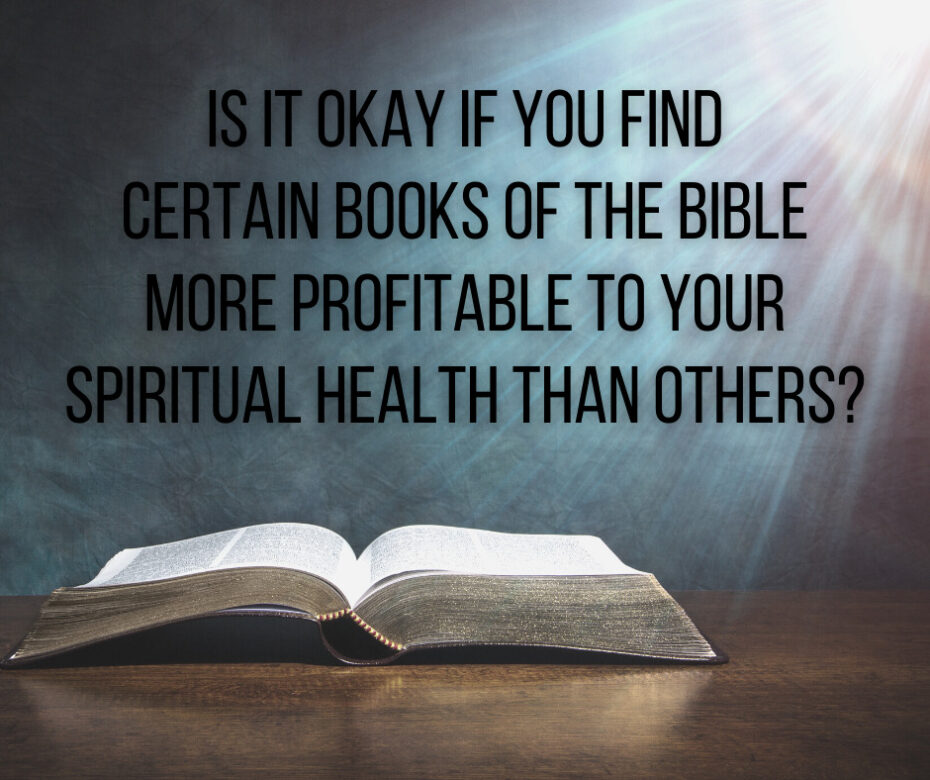John asks this interesting question: “Which Old Testament books are a must read for Free Grace born–again believers?”
That is a bit like asking which food is must-eating for the person who wants to remain healthy. We need all of the food groups. Proteins, carbs, veggies, good fats, water, etc.
In one sense, the Free Grace person should be reading every book of the Old Testament and of the New Testament. At our church we read through the entire Bible every 18 months, reading two chapters per day.
All Scripture is God-breathed and profitable (2 Tim 3:16). That even includes books that contain long lists of names, books that give in great detail the sacrificial system, books that deal with the Jewish people nearly being exterminated during the Persian empire, and so forth. However, it is important to recognize that certain books deal with certain topics, and that not all books are equally important in our spiritual development.
In my opinion the single most important book in the Old Testament is Genesis. It is the book of beginnings. Moses tells us about the Creation, the Fall, the worldwide flood, the call of Abram, the life of Abraham, Isaac, Jacob, and Joseph, and the birth and growth of Israel in Egypt. There are many ties between Genesis and the New Testament.
Exodus is the second Old Testament book in the first five, known as Torah, and it, too, is essential to understand God’s dealings with Israel and to understand the New Testament.
Other pivotal Old Testament books include the Wisdom Literature (esp. Psalms), the history books (esp. 1-2 Samuel, 1-2 Kings, 1-2 Chronicles), and the prophetic books (esp. Isaiah, Jeremiah, Daniel, and the Minor Prophets).
While every believer should hear messages from every book in the Old Testament and should personally read every book of the Old Testament, new believers must start somewhere, and even mature believers must decide which books to read at which times.
We probably should also discuss which New Testament books are of first importance. Most agree that the Gospel of John is the place to start, since it tells the unbeliever how he can be born again, and it reminds the believer that assurance is found solely in the promise of life that the Lord Jesus gives.
Acts is an important book on the birth and growth of the early Church. It especially follows the lives and ministries of two apostles, Peter, and Paul.
Key books on eschatology include 1-2 Thessalonians and Revelation.
James is a key New Testament wisdom book.
The Pastoral Epistles, 1-2 Timothy and Titus, are crucial concerning the life of the local church.
The Prison Epistles, Ephesians, Philippians, Colossians, and Philemon, are powerful books calling for perseverance.
What to read in the Old Testament? In the New Testament? Read every book many times over the course of your life. But it is okay to have some favorites.


